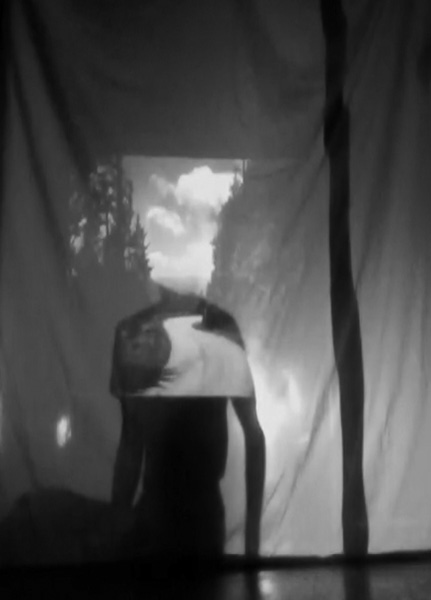
SHEET POETRY/SLIDE SHARE
first performed on
December 7, 2011
The City Reliquary, Brooklyn, NY
performed twice in 2011
SERIESOUS
Michael Newton, Lowell Clare
918551587n918551587e918551587w918551587t918551587o918551587n918551587o918551587d918551587y918551587@918551587g918551587m918551587a918551587i918551587l918551587.918551587c918551587o918551587m
SHEET POETRY/SLIDE SHARE
SERIESOUS
Medium: The fact that this show has two names speaks to the rich, unresolved difficulty of categorizing collaborations involving multiple mediums. Is this poetry with slides or vice versa? How does hierarchizing a performance’s medium(s) influence the digestion of that performance? By treating this question more as a rule in a game than as a problem to be solved, “sheet POETRY SLIDE share” uses the mash-ups and valuations of medium to generate “exciting” options for alternative configurations (“today both the slides and the poetry will occur on the side of the sheet opposite the audience,” “today the slides will be on the side of the audience and the poetry will be on the opposite”). These technical matters of placement act as a feed-back loop, generating new possibilities for interpretation and experience on the part of the audience.
Body and Voice: How can we reintroduce the body as a presence and reactivate the reading as a performance? Simultaneously, what is the effect of redacting the poet”s body to a two-dimensional image? By turning the poet into a shadow on a sheet, the grounds for understanding and receiving the content of the poet’s language are redirected in ways that have not been fully explored. The shadow becomes a shifting factor within a larger performance, now fore-grounded, now invisible, subtly creating a disassociation (hopefully) between that shadow-body and the continually unfolding rhythm of the spoken text.
Why Poetry: The shadow flits into and out of focus, disappearing, turning different colored lights on and off, all the while overrun by a steady progression of Kodak-slides depicting travel through the iconography of a quintessential, phantasmic “America.” Is “we’re Maximalists” an adequate answer to the question of why all this business still counts, or still wants to count itself, as poetry? Of course, the beauty-part is that “poetry” is only a portion of the action. And truth be told, there are only portions. Although they retain their separateness, the portions interact and compliment one another, producing a thematic conversation about place and identity, reality and perception-which would not exist if they were presented in isolation. In terms of poetry, this thematic tentatively engages/embodies larger academic discussions about the place of authorial identity within the text. By critiquing and becoming, this narrative voice emerges as the only tool capable of erecting an insufficient monument to the social/political/cultural worlds that use language to manipulate.